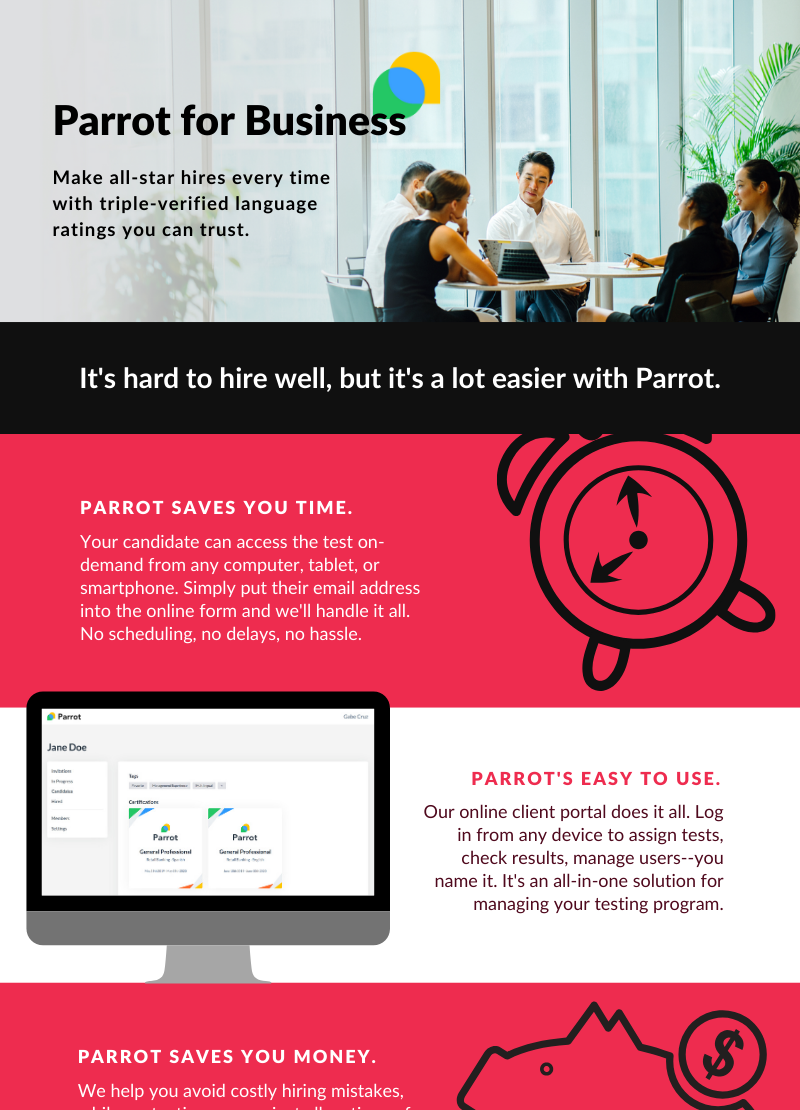Why Knowing Another Language May Be Your Greatest Asset
Life is full of twists and turns, surprise situations that catch us off guard, tumultuous moments we have to (or want to) rise to. That’s just the way of the world. And when we find ourselves in an unexpected moment, we always want to have as many resources as possible with which to face a new circumstance head-on. Whether you find yourself living in a new country, reimagining your work-life balance, or simply looking for a job, you’ll want to stack up all the skills and assets you can.
This may mean getting specific certifications or letters of recommendation from respected colleagues and employers. It might mean reaching out and forming a community in a new town to which you’ve unexpectedly relocated. One asset that’s, regrettably, too often overlooked is knowing another language. Language learning, whatever language that may be, is a skill that will take anyone far. Learning a language to the level of fluency unlocks next-level employment opportunities, allows you to travel the world freely, and may even increase your ability to understand folks around you. In short, being bilingual (or multilingual) may be the greatest gift you never knew you needed.
Better Job Opportunities
In an increasingly multilingual market, language skills are a must for anyone with aspirations for advancement. While English language proficiency is crucial in many situations, plenty of organizations operate on a number of continents simultaneously. Mandarin Chinese, for example, is an excellent language to learn if you plan to operate at a high level in the global market, seeing as China has the second largest economy in the world when measured by GDP (Gross Domestic Product). Employers are looking for team members who can communicate across borders, so proving your fluency in one of the top business languages in the world (English, Mandarin, French, Spanish, and Japanese) will push your resume right to the top of the pile. Plus, it might land you on the next plane to your company’s headquarters in an exciting new locale.
Go On More Adventures
Learning a new language isn’t just good for meeting your business goals, though. Even if you never plan to use your language skills in a professional capacity, speaking and reading fluently can take you on new adventures. Learning Spanish, for example, allows you to travel effortlessly through most of Central and South America, accessing areas that are usually only for local folks. Knowing Hindi is great for business (India also has an economy to be reckoned with), sure, but it also allows you to roam the subcontinent unimpeded by any language barrier, independent of interpreters. You can experience the richness and variety of the Hindi-speaking world if you speak the language fluently. If you’re the kind of person who seeks out the unexpected situations that life offers, knowing another language is a skill you can’t go without.
Increase Your Emotional Intelligence
Beyond just giving you the capacity to describe ideas and concepts in more ways, language learning may also increase your capacity to empathize with others. This seems like common sense—the more we are able to speak to others and are exposed to cultures other than our own, the more likely we are to understand where someone with a different heritage is coming from. It turns out, though, that there’s data to back up this assumption as well. Studies have shown that learning a language may actually make your brain bigger than it previously was, which has been connected to increased capacity for empathy and less risk for dementia. In other words, language fluency is an asset in more ways than one.
There are many ways to give yourself a leg up in the world. Education, community, and plain old grit will all get you very far. If you’re thinking about which skill to add to your essential toolbox, though, signing up for a language class in one of the world’s top languages may prove to be an extremely worthwhile choice.
Additional Resources

Parrot for Business Info Sheet
We built Parrot to help businesses hire candidates with the language skills those businesses need to grow. Read this info sheet to learn more about how easy your testing program could be.

Test Quality & Validity
By combining an innovative methodology with modern tech, we’re creating a new standard for evaluating language skills. However, none of that would matter if our results weren’t also unquestionably valid. This report shows how we’ve fine-tuned our method to meet and exceed key industry standards for validity.
Want to know more?



